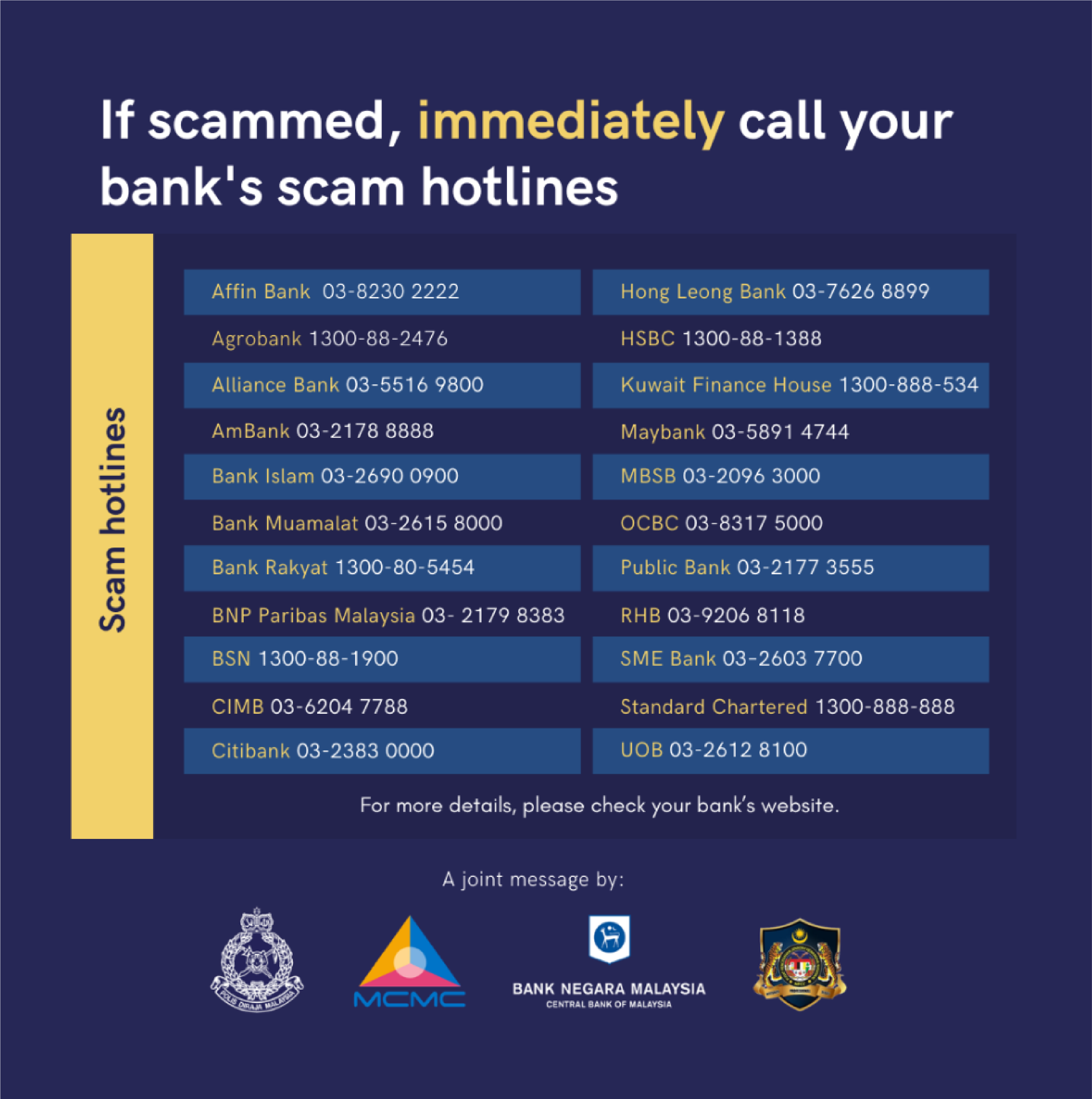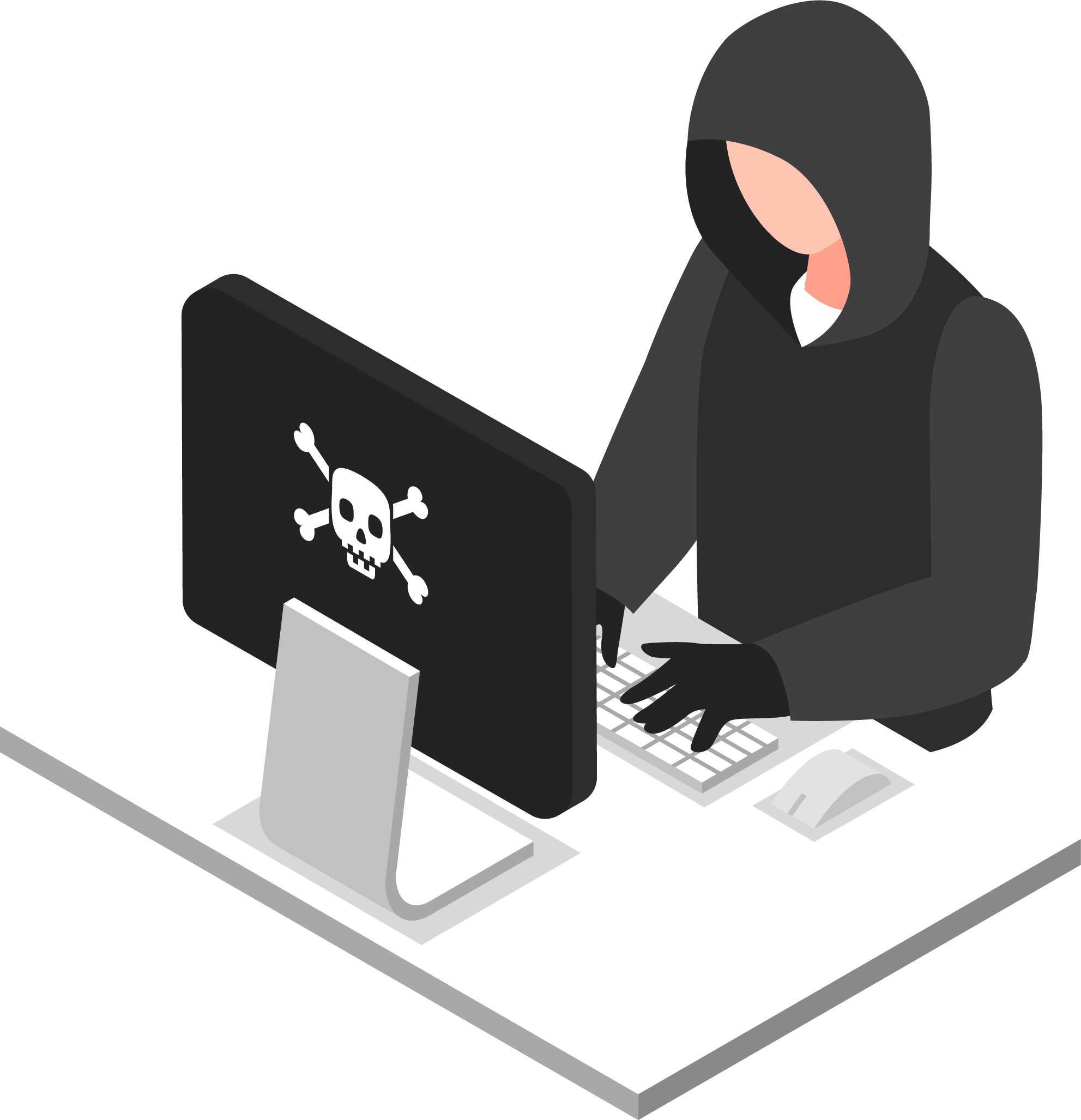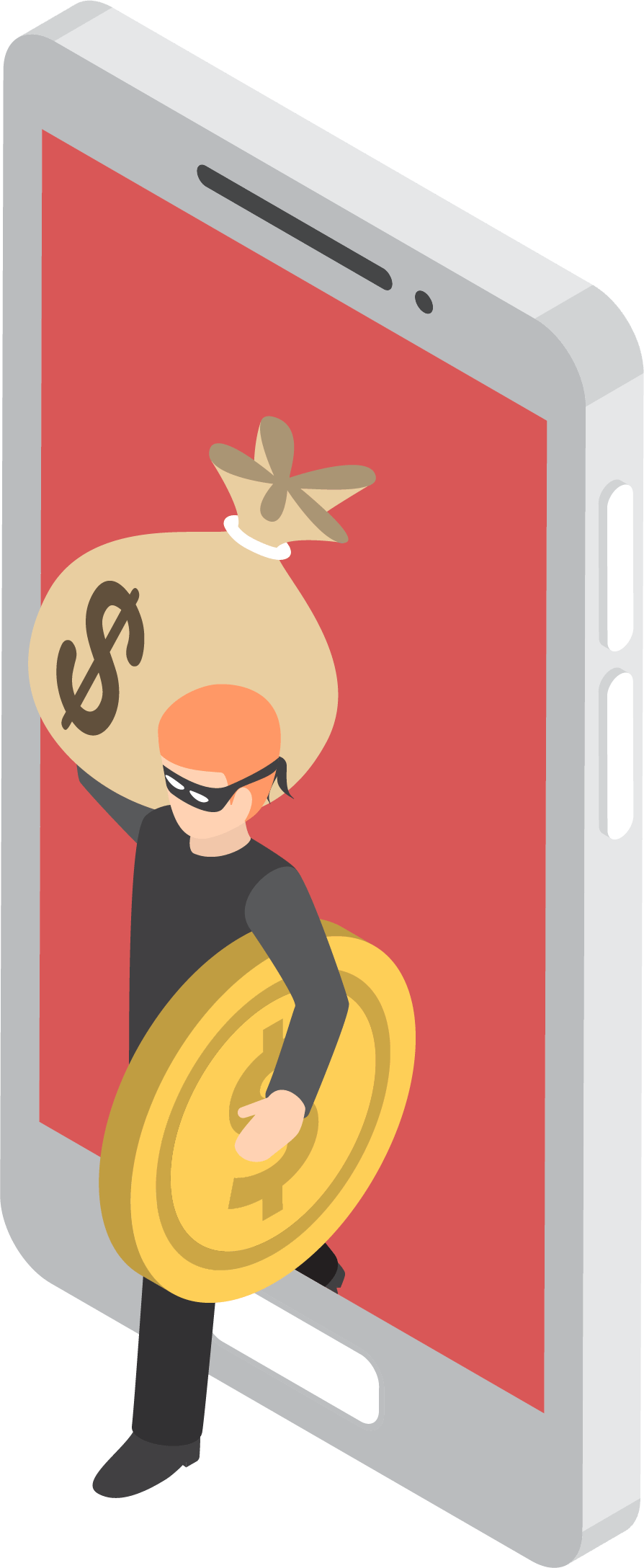Protect Yourself From Scams
Managing Money Series
Debit and Credit Cards, Online Payments and E-Wallets
Bank, Bank Account and Online Banking
Bank Loans and Credit
Saving & Budgeting
Understanding Insurance
A scam is when someone tries to take your money by pretending to help you or offering you something. Money scams come in many forms.
Scammers are getting better at their tricks and coming up with new ways to fool people in the digital age. With a few sneaky moves, they can trick you, steal your personal information, and get into your bank accounts, causing a lot of trouble.
Common scams include phishing, phone scams, and identity theft. You can better protect yourself by understanding these scams and following these general tips.

If you believe you have been a victim of a scam, this section tells you what you can do next.
Scammers can reach you by:
Get more information about money scams from the Bank Negara website.
Warning Signs of a Scam
- You are contacted by someone who you do not know or by a company you have not heard of.
- You are asked for money, or you are offered money.
- You have to make a quick decision and have no time to talk to your friends and family about it.
- You are told to keep it a secret.
General Tips for Protecting Yourself From Scams
DO NOT SHARE your personal banking details with people that you do not know or trust
- Account Number
- PIN Number
- OTP Number
DO NOT DOWNLOAD mobile applications outside your smartphone’s official application store (e.g. Google Play, Apple App Store, Huawei App Gallery).
- Do not use public Wi-Fi for online banking.
- Do not download apps from unknown messages or websites.
- Do not install apps from unknown sources.
- Do not click on suspicious links from SMS, emails, or other online messages
- Delete the suspicious app.
- Change your banking password.
- Report any strange transactions to your bank and file a police report.

















